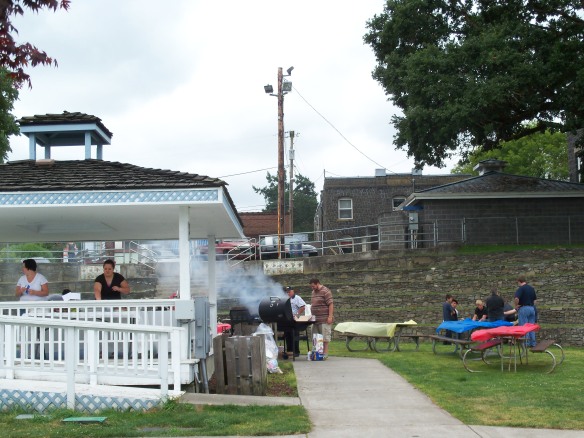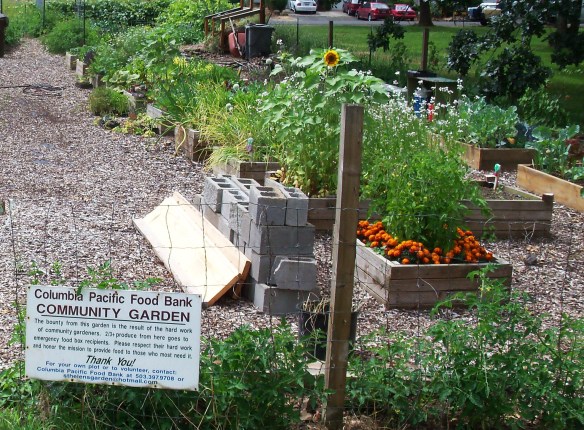“So I have a question for you,” my good friend and neighbor said to me. She’d come up the hill to help me plant a box of baby fir trees on the steep slope of pasture we were trying to reclaim as forest.
“Okay?” I grin up at her as she puts into my muddy hand the next little tree, my other hand holding open the hole in the dirt I’d just dug.
“Well, I don’t know how to say this,” she begins and then all in a rush, “why don’t you choose a religion that fits you better?”
Though I’m taken aback, her question is not entirely out of the blue. Among every other topic under the sun, we’ve also talked religion — or rather spirituality, because she isn’t much for organized religion. But faith we both know. And the inner quietness that brings clarity. We both know what it means to try and try to treat others with the respect and kindness we both hope to receive — even when we don’t receive it. And how easy it is to stumble and do what we wish we wouldn’t and not do what we wish we would.
So how do I answer her?
“What do you mean?” I ask, thinking what am I but bred in the bone, sinew upon sinew shaped by a lifetime of belief?
“I mean,” she explains, “if you want a church, why not choose one a little more . . . progressive?”
She has told me I am the only Mormon she has ever actually known.
Where has she gotten her idea of what Mormons are if not from what I am?
I don’t think there is a single aspect she’d identify as progressive that I wouldn’t trace back to the core beliefs that shape me.
What could be more revolutionary — honestly? — than Turn the other cheek? or This is pure religion and undefiled, to visit the fatherless and widows in their affliction?
I’ve lived my life within congregations that I did not shop for, congregations that are geographically set, that purposely pull from both sides of the track in the towns I’ve lived in. I’ve visited monthly in homes of real want and real wealth, talking in both places of some of the same kinds of struggles and small joys — but seeing the differences, too, and understanding some of those struggles on a more personal level because the people suffering are friends I respect and love.
In my congregation, English is not the only language spoken and our skin tones are more varied than proportionally dictated by my town’s given variety. I’ve sat under the lessons and sermons of people with no education beyond high school and they’ve sat under my lessons and sermons. I’ve served side by side with PhDs teaching three-year olds. I’ve set up tables and served punch and cookies with hairstylists, social workers, and physicians. I’ve served on committees with nurses and lumbermen and truckers, with soldiers and accountants and a former night club dancer, with farmers and special ed teachers and the perpetually underemployed. What’s more, the accountant was not male, the nurse was not female — neither was the special ed teacher, and the trucker was the head of the committee. What could be a more radical turning on its head of our social divisions and the caste system we have turned our careers into?
It is in this environment that I’ve learned more than anywhere else to see my town as a unit, a whole organism, whose least members matter as much as any other and whose needs and dreams need to be part of the real solution to the problems we all face. That is the real root of my progressive-ness.
Because what idea has as much power to change our relation to one another as the knowledge that every human body who walks the earth is God’s dear child — every human body — that whatever you do to any other body — even the most different, the most lowly, the most arrogant, the least admirable, the least likable, the least in agreement with you — you are doing to God?
Do I tell her my involvement with causes she calls progressive is the natural outgrowth of my belief that Jesus will most certainly return to this world He made and loves with a love deeper than I can comprehend? That I am only responding to His call to prepare the way?
That I believe in the deepest core of my soul that He is the one who sets us all — believers and as-yet-unbelievers — on this path, calling each of us inwardly in words only we can hear and understand — no matter what groups we belong to, no matter whether we acknowledge it or not — to build His everlasting kingdom of peace and balance and thrifty abundance and worldwide equality? That He is forever taking up in His mighty hand all our best (though puny) efforts at peace and abundance and turning them truer than we knew.
Would she understand that I want to be found by Him standing among those who helped the good work forward, rather than those who stood in the way?
How can I tell her that I am every day re-encouraged when I remember that I am living within the triumphant arc of a story that ends with vileness failing and goodness prevailing. That I am enheartened to keep doing the small good things I know to do socially, environmentally, politically, because I wholeheartedly believe that by small and simple things are great things brought to pass?
What she has called a quiet embracing of others is what I have seen as the example of Christ, the path He beckons us all to walk with Him.
And the fact that not all Mormons see things exactly the way I do is just one of the things I love about my religion. I love that I have to gather every week with people from whom I would be too completely divided (by politics, by interests, by education, by socioeconomics, by so many things) if we didn’t share the same hope in Christ.
I love it that I am called each week to come sit beside them, among them, sharing the hymnbook between us, clasping hands, listening to each other’s struggles and woes of the week, the small celebrations.
I cannot imagine a world at peace that does not begin with me building peace with the closest neighbors I disagree with. That they can love me and I can love them is for me a small and recurrent gift of grace.
I sit back on my heels, hands on my hips. The wind blows my friend’s hair around her head standing there above me. What I have to say is so huge, how can I ever say it and be heard?





![her2bhands[1]](https://imaginarybicycle.files.wordpress.com/2012/02/her2bhands1.jpg?w=584&h=362)
![christmas-concert-large-2010-10-03[1]](https://imaginarybicycle.files.wordpress.com/2011/12/christmas-concert-large-2010-10-031.jpg?w=584&h=266)
![9865-600[1]](https://imaginarybicycle.files.wordpress.com/2011/12/9865-60011.jpg?w=584&h=389)
![7813-600[1]](https://imaginarybicycle.files.wordpress.com/2011/12/7813-6001.jpg?w=584&h=389)



![bicycle_thank_you_card-p137550166071021331qdoq_400[1]](https://imaginarybicycle.files.wordpress.com/2011/12/bicycle_thank_you_card-p137550166071021331qdoq_4001.jpg?w=584)